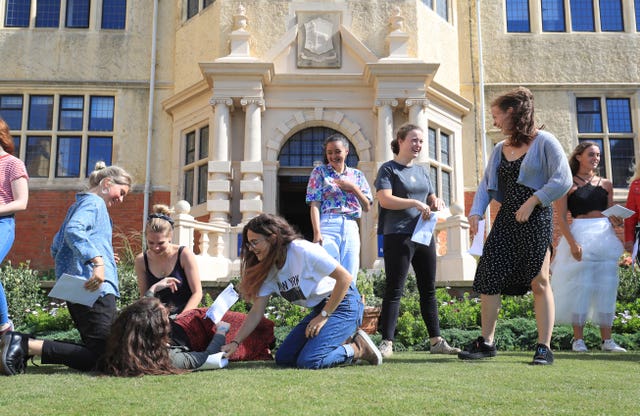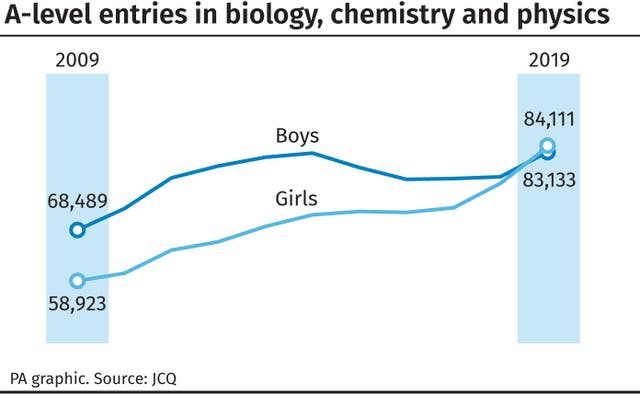Girls have overtaken boys in A-level science entries for the first time, national figures show.
The gender switch was hailed as “a cause for celebration” by scientists as school leaders suggested that an increase in female role models in the subjects may be contributing to the trend.
The figures came in national A-level results, published today, which showed that across all subjects, the proportion of A-level entries awarded an A grade or higher has fallen to the lowest level for more than a decade.

Girls narrowly clawed back the lead from boys in terms of overall A* and A grades, although boys still outperformed their female classmates in the highest result.
And Spanish has become the most popular foreign language at A-level, overtaking French for the first time.
The figures, published by the Joint Council for Qualifications (JCQ), cover A-level entries from students in England, Wales and Northern Ireland.
Around 300,000 students are receiving their results today.

A key change was the shift in entries for A-levels in the three sciences – biology, chemistry and physics.
For all three subjects combined, there were 84,111 entries from girls this year, compared with 83,133 from boys, according to an analysis of data published by the JCQ.
The change has been driven by more girls than boys taking biology and chemistry.
Boys are still significantly more likely to take physics, with more than three times as many entries than their female counterparts (30,159 compared with 8,799).
Professor Tom McLeish, chairman of the Royal Society education committee said it was “delighted that the sciences are faring positively” with overall increases in entries for science subjects.
He added: “A further cause for celebration is that female entries in the sciences are at a historic high, with increasing numbers of girls opting for chemistry and physics.
“However, there is still work to do in closing the gender-gap in maths and computing.”
Geoff Barton, general secretary of the Association of School and College Leaders (ASCL), said this year was a “milestone” in science entries.
“There’s been a trajectory and this is the year that is a milestone in which we’re seeing females saying ‘this is as much my territory as it is male territory’,” he said.









